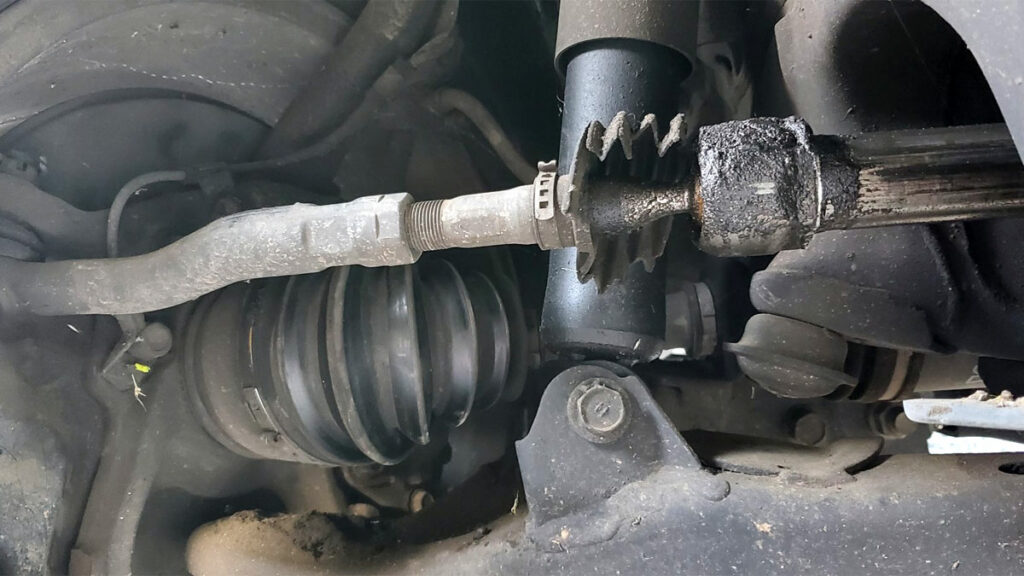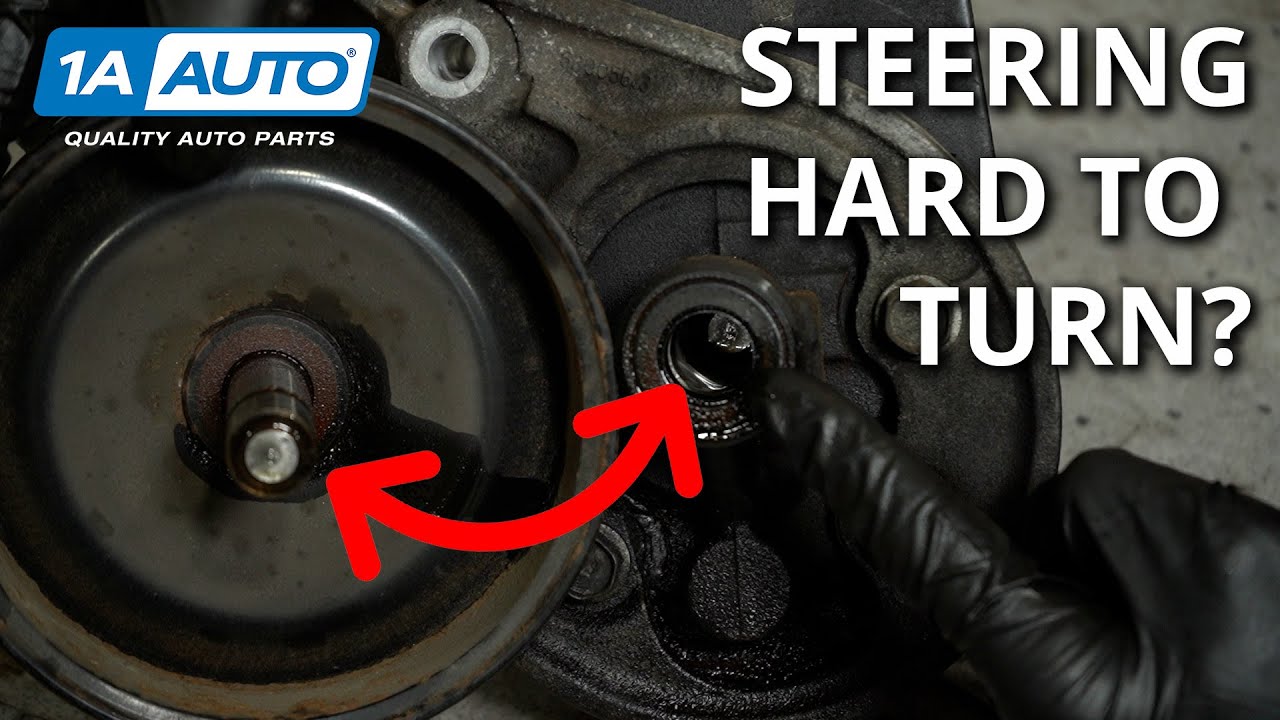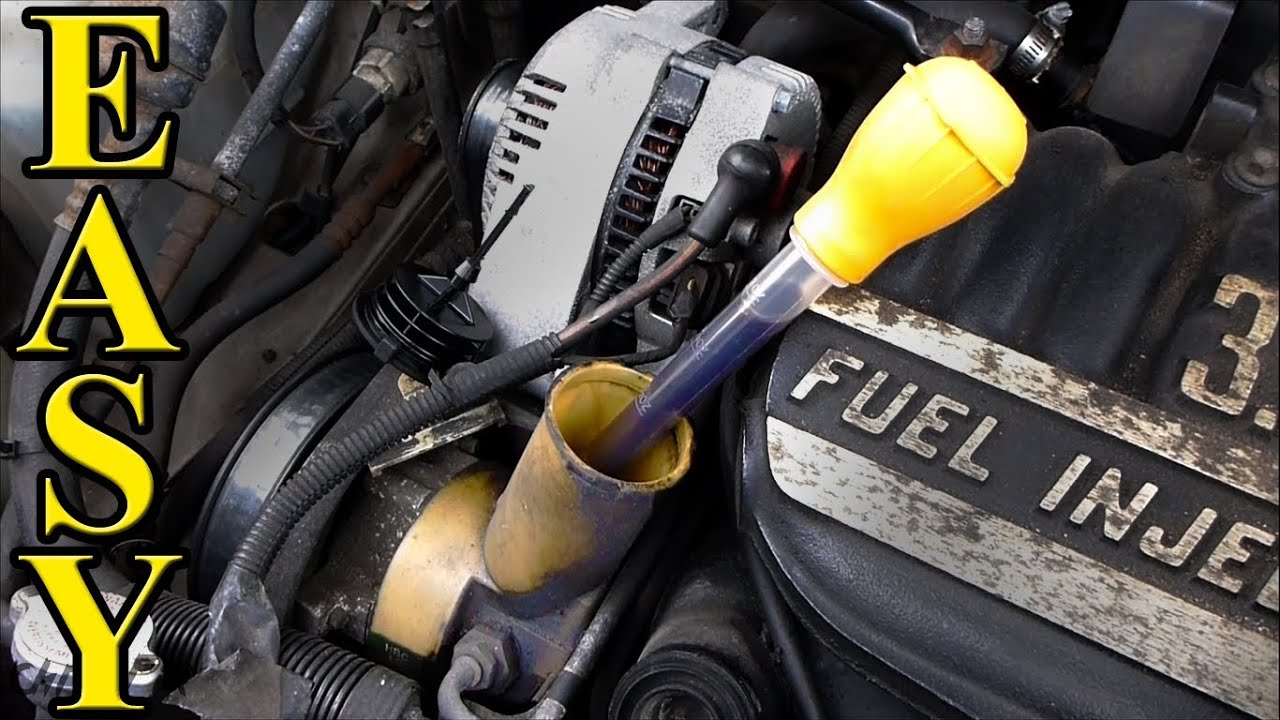Encountering a stiff steering wheel can turn your smooth ride into a strenuous task, raising concerns about safety and control. Even with adequate fluid, various hidden culprits could be tightening the grip on your steering. Let’s steer into the realm of automotive mysteries and unravel the causes behind this challenging ordeal.
Why does a car steering wheel become harder to turn even though the fluid is full?
A car’s steering wheel may become harder to turn even though the fluid is full due to the power steering fluid becoming too thick. Over time, the fluid can accumulate dirt and debris, causing it to lose its ability to flow freely and lubricate all the parts of the steering system.
This can make the steering wheel more difficult to turn, especially at lower speeds. The solution to this problem is to flush out the old, thick fluid and replace it with fresh, new fluid to ensure proper lubrication of the steering system.
Common Causes of a Steering Wheel That’s Hard to Turn Even though the Fluid is full
The following are some of the common reasons why a car steering wheel is hard to turn even when the fluid is full:
Improper Tire Pressure and Misalignment
One of the common causes of a hard-to-turn steering wheel is improper tire pressure. When the tires are not inflated according to the manufacturer’s recommended PSI, especially if they are deflated, it can cause the steering wheel to become stiff.
Additionally, uneven wear on the front tires due to misalignment can lead to uneven tire tread and further exacerbate the problem. This can cause the wheels to become misaligned and make it difficult to turn the steering wheel while driving or taking turns on the road. Checking and maintaining proper tire pressure and front-end alignment can help prevent this issue.
Steering Rack Issues

The steering rack is a critical component of the steering system that can wear down over time. If you notice stiffness in the steering wheel as soon as you start the car, it is likely due to a damaged steering rack.
As you continue driving, the steering wheel will gradually feel more free to move as the lubricant settles in, and the rack becomes hotter with the running of the engine. However, ignoring this issue can lead to further deterioration of the steering rack, ultimately causing the problem to escalate.
Serpentine Belt Damage
Another common cause of hard-to-turn steering wheels is a cracked or broken serpentine belt. The serpentine belt is a crucial component that drives the power steering pump, which generates the necessary pressure to turn the wheels.
As the belt wears down over time, it can become loose and erode, causing the steering wheel to become stiff. Ignoring this issue can cause the belt to break completely, leaving the steering wheel unresponsive and potentially dangerous while driving.
Fluid Leakage and Low Fluid Levels

Inadequate fluid levels in the steering system can also cause the steering wheel to become hard to turn. This happens when there is a leak in the pressurized hose area, or the hose becomes loose, causing fluid to leak out and reducing pressure in the system.
This leads to drying out of the pump and insufficient fluid supply to lubricate the steering system. If this issue is not addressed, it can damage the pump and lead to further problems with the steering system.
Pump Malfunction
The power steering pump is responsible for generating the necessary pressure to turn the wheels. If the pump becomes damaged or stops working properly, it can make it difficult to turn the steering wheel.
While an impaired pump won’t stall the steering wheel completely, it will require significantly more effort to turn, potentially causing dangerous situations when attempting to take sharp turns on the road. It is important to have a mechanic inspect the pump if this issue is suspected.
Thick Fluid
Like any other fluid in a vehicle, power steering fluid can collect dirt and debris over time, causing it to become too thick to flow freely and lubricate all parts of the system. This can cause the steering wheel to become stiff, especially at lower speeds. The solution to this issue is to flush the old fluid from the system and replace it with new, fresh fluid to ensure proper lubrication and smooth operation of the steering system.
How to Fix the Hard Steering Problem
Fixing a hard steering problem depends on the underlying cause. Here are some potential solutions:
- Check and Adjust Tire Pressure: The first thing to do is to check the tire pressure and adjust it according to the manufacturer’s recommendation. Make sure all the tires are inflated to the right PSI. If the front-end alignment is out of whack, take your car to a professional mechanic for adjustment.
- Replace Steering Rack: If the steering rack is damaged, the best solution is to replace it. Replacing a steering rack is a complicated task that requires expertise, so it’s best to take your vehicle to a reputable mechanic.
- Replace Serpentine Belt: If the serpentine belt is the culprit behind the hard steering wheel, then it should be replaced as soon as possible. A cracked or worn-out belt can snap at any time, leading to a complete loss of steering control.
- Check for Fluid Leakage: To address fluid leakage, inspect the pressurized hose area for any leaks or loose connections. If there is a leak, replace the damaged hose or tighten the loose connections. Also, check the fluid level and refill it if it’s low.
- Replace Pump: If the pump is faulty, it may need to be replaced. A professional mechanic can diagnose the problem and determine whether a replacement is necessary.
- Flush Power Steering Fluid: If the power steering fluid is old or thick, it’s essential to flush the system and refill it with fresh fluid. This is a simple and affordable fix that can help to restore normal steering function.
How Much Does It Cost to Fix a Stiff Steering Wheel?
The cost to fix a stiff steering wheel can vary widely depending on the underlying cause of the problem. For example, if the issue is simply a low power steering fluid level, the cost may be as low as $50 to $100 for a fluid refill and system check. However, the cost can increase significantly if the problem is more complex, such as a damaged steering rack or pump.
Replacing a steering rack can cost anywhere from $650 to $1,200, depending on the make and model of the vehicle. A new power steering pump can cost between $200 and $500, including labor costs for installation. If the problem is due to a damaged serpentine belt, the cost to replace it could be around $100.
In some cases, a warranty or insurance may cover the cost of fixing a stiff steering wheel. It’s important to consult with a trusted mechanic or dealership to get an accurate estimate for the specific issue affecting your vehicle.
FAQs
What are the common causes of a stiff or hard-to-turn steering wheel?
There are several common causes of a stiff or hard-to-turn steering wheel, including low tire pressure, a damaged steering rack, a damaged serpentine belt, fluid leakage, a malfunctioning pump, or thick fluid in the power steering system.
How do I know if my steering wheel is hard to turn?
If you find it difficult or challenging to turn your steering wheel, especially when making a sharp turn, it is likely that you have a stiff or hard-to-turn steering wheel.
Can I continue to drive my car with a stiff steering wheel?
You can drive your car with a stiff steering wheel, but it is not recommended. It can be dangerous, especially when you need to make sudden turns or maneuvers.
How can I prevent a stiff or hard-to-turn steering wheel?
Regular maintenance of your power steering system is crucial in preventing a stiff or hard-to-turn steering wheel. This includes checking fluid levels and changing the fluid as recommended by the manufacturer, as well as regular inspections of the steering rack, pump, and other components. Additionally, maintaining proper tire pressure and alignment can also help prevent steering problems.
Conclusion
A hard steering wheel is a serious issue that can make driving difficult and dangerous. While there can be many causes for this problem, it’s important to get it diagnosed and repaired as soon as possible. Regular maintenance and inspection of the steering system can help prevent these issues from occurring.
It’s also important to address any signs of steering problems early on, such as unusual noises or difficulty turning the wheel, to prevent further damage and potentially costly repairs. By taking care of your steering system and addressing any issues promptly, you can ensure a safe and enjoyable driving experience.




